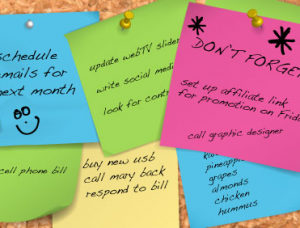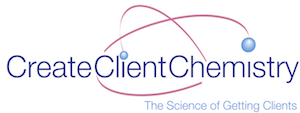
by Francis | Uncategorized |
 Time Management is one of the most important aspects in building a successful solo business.
Time Management is one of the most important aspects in building a successful solo business.
It remains however a very difficult monster to tame.
We all know that spending your time on those things that can make a difference and have the biggest impact on your business success is vital and that it requires you to have some dedicated focus.
But truth of the matter is, most solo-entrepreneurs have a to-do list a mile long. There is just always something you need to take care of or something that needs attention …and often unexpected things topple the apple-cart and make it easy for you to lose focus.
Sometimes things even get so out of hand that you don’t know what is important anymore and what you need to focus on first, because everything seems important and very urgent.
This is when you need to take a step back, and re-evaluate your priorities… and I know, this is often easier said than done.
When things get out of hand in my business, I usually force myself to take some time out, to look at my to-do list of 101 and to re-evaluate and re-prioritise the tasks.
To put things in perspective for me, I first use the following criteria: What will make the biggest impact on my bottom line in the shortest period of time and with the least amount of effort?
Secondly, I apply the 80/20 rule or Pareto Principle to those tasks.Now, the Pareto principle states that roughly 80% of your results come from 20% of your efforts. For example:
- 20% of your marketing methods results in 80% of your clients: Focus on those methods.
- 20% of your clients contribute to 80% of your income: Nurture those clients.
- 20% of your business tasks gives 80% of the results: Focus on those tasks.
So when you’ve narrowed down your huge to-do list to the actions that will have the biggest impact on your business, apply the Pareto Principle and choose the 20% actions that will give 80% of the results you want and start doing them first.
The secret here is to complete each action before you move on to the next action. No multitasking ladies! Sticking to one action and completing it is the only way to get results fast.
This way you can easily tick off the important actions from your to-do list, while you simultaneously see the results in your business.
The value of applying the Pareto Principle (80/20 rule) is that it can help you to successfully identify those aspects where spending your time produces the most results. By focusing your time on those actions, you not only move your business forward faster, you also feel better and much more in control.
Vice versa, applying the 80/20 rule can help you identify those 20% actions that take up 80% of your time, but are doing zero to nothing to increase your bottom line. Those are the tasks that you can easily outsource to free up even more time.
Bottom line: You can tame the time-management monster when you don’t just “work smart”, but when you work smart on the right things.
If you like the 80/20 rule and think it can also work in your business, why not commit yourself to apply it on at least one aspect of your business. Share with us below what you will focus on first :).

by Francis | Marketing Tips
 35 Years after his death, Elvis Presley is still alive.
35 Years after his death, Elvis Presley is still alive.
He lives in the hearts and memories of many who have been part of his era. For them Elvis will always be the King of Rock and Roll!
For many of us today, Elvis is just a name, a musician and music idol of the 1950’s. But what fascinates me is that Forbes Magazine still rated Elvis as the second highest Top Earning Dead Celebrity with an income of $55mil dollars in 2011.
How did he create a fan base that is still fanatical about him and his work, 35 years after he’s been gone?
Well, I don’t really know. 🙂
But what I do know is that apart from the fact the Elvis was a brilliant musician and had a pure love for music, many people loved him for who he was – a people’s person and excellent networker. He was true to himself and the people he knew, warm and interactive with his friends and admirers and extremely generous.
To understand a tiny bit of who he was and what made him such an icon, here are 4 traits about Elvis that we can apply in our business and especially in the way we network and interact with people as well.
Elvis mingled with the right crowd:
When he first started out, he was often seen in the company of news agents and music producers while at parties. He also enjoyed socializing with his fans. These were all people that could help him advance his career.
It is not just Elvis, but many successful people are often seen in the company of other successful and influential people. So, it really goes without saying that mingling with the right crowd is very important – especially when you just start out.
It is an opportunity to meet the “right” people: people who has some influence and can help you to progress faster with your business, or people who are in your target audience and can eventually become your clients, or people who can become strategic alliances and/or great connectors and put you in front of the audiences you are looking for.
Thus, for networking to become a powerful marketing and business building strategy, it is important to mingle, (like Elvis) with the “right” people and in the right places.
Elvis was distinctive:
His trademark flashy clothes and magnetic personality made him stand out in a crowd.
Perhaps you feel you can’t wear flashy clothes with flair or you don’t have an outgoing personality like Elvis. That’s okay. You can still be distinctive in your own way.
You can cultivate your own uniqueness with how you greet and interact with people; or with your elevator speech; or even just the way you make people feel special by “listening” to them instead of shoving a business card at them.
You can become distinctive, by being interested in forming genuine relationships with the people you meet at events and by following up with them the very next day.
To be distinct, doesn’t mean you need to have three eyes or purple hair. You can just be yourself and have something that make you stand out and have people remember you.
Elvis was a giver:
Much of his generosity was unknown to the general public. However, behind closed doors he supported everyone from friends and family to total strangers. He paid people’s hospital bills, bought wheelchairs for those in need, and paid off others debts. He even bought Cadillac’s and flashy diamond jewelry for some of his friends.
Being a giver during networking doesn’t necessary mean that you have to give money or expensive gifts to people. You can become a giver by giving referrals. Master networkers provide LOTS of referrals. They make it their business to connect people. And not surprisingly, this always comes back to them.
You can also become a giver by delivering the same ‘high-value’ information during networking interactions that you do with your clients or in your articles, emails and on your website. When your connections feel you add value to their lives, they will be attracted to you and can eventually become clients or refer you to someone else.
Bottom line: When you create value for others, you are creating value for yourself.
Elvis was fully present:
He was a good listener; he liked to treat everybody he met and made them feel special. He also took a genuine interest in the welfare of his friends and family. He didn’t wear a mask and was true to himself and the people around him.
To be fully present during networking, means to show genuine interest in the person you’re talking to. Stop selling and start listening to the people you meet, but don’t wear a “mask” of being falsely interested. I am sure you have experienced a person who, while you’re talking to him, keeps his eyes roving around the room seeking his next victim. He’s nodding his head as if his listening, but you know he didn’t hear a word. How did it make you feel? Not very good I suppose and in future, you will avoid speaking to that person again, isn’t it.
So, instead of falling in that trap, be fully present and be interested. Take part in the discussion and ask questions. People enjoy talking about themselves and when you are truly interested in what the other person has to say, you might just pick up on something important. Thomas Power says: “I find that the most powerful knowledge comes from listening to people.”
In my eyes, a networking event is not a time to see how many business cards you can dish out. It is a time to develop valuable relationships that have potential. It is a time to ensure that you (like Elvis), build a fan base that will love and remember you and honor your memory long after you’ve being gone.
Share with us below which of these 4 traits of Elvis you can identify with the best and also which one you will apply next time you attend a networking event.
As always, thanks for reading and if you enjoyed this post, feel free to share it using the buttons below.
Love and Success


by Francis | Uncategorized
 As we approach the end of the year, it’s always a good practice to take a look back at the last 12 months and to take stock of what happened in your business. Were you thrilled by all your successes or perhaps disappointed in how it turned out in the end?
As we approach the end of the year, it’s always a good practice to take a look back at the last 12 months and to take stock of what happened in your business. Were you thrilled by all your successes or perhaps disappointed in how it turned out in the end?
No matter where you are in your business and what the results looked like over the previous 12 months, NOW is the right time to assess everything and create the success you deserve.
Setting aside some time for a little planning is a best practice ALL successful entrepreneurs apply and it will work for you too, even if you’re not the “planning” type.
So why not take some time RIGHT NOW and use the 4 steps below to outline what you are going to accomplish to ensure you have an even better next year.
Step 1: Reflect on the past year.
The big question is: What happened in your business over the past 12 months. On face value it might feel as if you had an excellent year, but to get clarity on what exactly happened it’s important to evaluate specific points such as:
- Income: Did you reach your expected income?
- Expenses: Did you overspend or under spend on your budget?
- Marketing: Did you reach your marketing objectives and did you do everything that you’ve planned for this year?
- Clients: How many clients did you have, how many new clients did you get and could you retain your clients?
- Business Weaknesses: Were there any areas of your business that you struggled with?
- Business Strengths: Were there any areas that you had successes in?
- Operations: Could you easily perform all the work you received – are there room for improvement? Do you need to get help?
- Is there anything new that you want to do or want to learn for the New Year?
- Do you need any new or different equipment and resources?
Step 2: Evaluate Performance
Answering the above questions, will give a pretty clear picture about your performance over the past year and will also give some pointers on things to do the same (or differently) for the year to come.
You can even dig a little bit deeper and answer the following questions
- Why did you do well or why didn’t you do well?
- Where can you improve?
- What can you do differently?
- Who can help to make a positive impact?
- When do you need to implement changes?
- How will changes impact on the rest of your business?
Step 3: Set new Goals
Knowing how your business performed as well as the reasons for performing good or not so good in each area, will definitely help to determine what to keep the same and what to change for the new year. Now is the time to set new goals and make those new plans.
Setting clear and specific goals for the next year is the first step to filling the gaps in your business. If you perhaps didn’t reach your goals from the previous year, that can be a good place to start for next year. Whether you’re looking for more clients, more visibility or more income in your business, you can reach all of those goals by creating and following through with you plan.
Step 4: Write it down
It won’t help much just having the information in your head and not do something about it. That will only raise the statistics bar of forgetting about all these wonderful plans early in the New Year.
So, map out your goals and give it specific deadlines. Write it down, schedule it in a calendar and put it up in a place where you can see it on a daily basis. This will help keep you accountable to not forget about the important details of the plans.
A wise man once said: “Planning will not guarantee success, but it certainly increases the probability of succeeding”.
Why not put it to the test this year.
If you liked this post, feel free to share it by clicking on the social media buttons below.
Also, share with us the one thing you want to improve in your business next year. By sharing and committing to it, you take the first step to actually achieve it! So, do share your thoughts below.

by Francis | Uncategorized
 Did you know that listening to clients is one of the most valuable weapons in your marketing arsenal?
Did you know that listening to clients is one of the most valuable weapons in your marketing arsenal?
We often take “listening” for granted…
But, when you become good at it and when you listen to– and understand what people REALLY say, you gather important information that can shape the future of your business.
We can compare “listening to clients” with eating a jawbreaker – those round sweets that consist of several layers and are so hard that you just cannot bite through them without breaking a tooth. When you eat a jawbreaker you have to suck through the hard shell and the different colored layers to eventually reach the soft, yummi core of the sweet.
It works the same with listening when you want to create a connection with your clients and experience that unique client chemistry where you truly understand them and they truly trust your abilities. You have to figuratively suck through the hard shell and the different layers of your clients to eventually reach the core essentials (the soft, yummi part) of what they really want….and you can only reach that core through attentively listening to clients.
When your clients are doing the talking, you gain a window into what he or she is thinking and by carefully listening to what they say, you gather valuable information that can help you:
- understand their needs
- connect with them better
- provide tailor-made support
- solve their problems
- create more trust and understanding
- tailor your marketing message
- improve your marketing strategies
- and eventually get more clients…
So, next time you have a discussion with a prospective client; are on the phone with an existing client… or even when you are just in a social conversation with someone else, keep the following listening tips in mind:
1. Listen with concentration
Be fully present in the conversation. Open your mind and ears and be receptive to the messages the other person is giving. Start listening from the first word and give the person your undivided attention. When people talk to you, listen and concentrate to make sure you hear what they are saying. Good listeners are not passive and they do not drift away with thoughts of their own.
2. Listen without interruption
The purpose of listening is to understand the message. Although you might think you know and understand what your clients want to say, avoid the urge to interrupt or finish their sentences. Be polite, listen carefully and always “put your brain into gear before you put your mouth into motion”.
3. Listen with the mindset to discuss
Effective listening is not a one way street. Make notes of what is being said and ask open ended questions. By asking the right questions, you are not only encouraging your client to do the talking, but it also allow you to get the key information you need about what your prospect is really looking for. Then take part in the conversation.
Ralph Nichols said “The most basic of all human needs is the need to understand and be understood. The best way to understand people is to listen to them.”
So now it is over to you…:)
Share with us below how listening to clients has helped you in the past….and if you liked this post please do share it. Thanks!
~ Francis xo

by Francis | Uncategorized
 Google Alerts is a nifty little tool that you can use as your own personal research assistant. As a woman solo preneurs, you often need all the help you can get. So having a research assistant (for free) that can adapt quickly and efficiently to each and every command you give and help you stay on top of all the latest information in your industry, is just priceless.
Google Alerts is a nifty little tool that you can use as your own personal research assistant. As a woman solo preneurs, you often need all the help you can get. So having a research assistant (for free) that can adapt quickly and efficiently to each and every command you give and help you stay on top of all the latest information in your industry, is just priceless.
Google Alerts is a system that searches the web, news sources, blogs, video sites and groups for any new information related to any search term you specify. Then, as the name suggests, it “alerts” you via an automated email about new results.
Whether you are just starting out and want more information about your industry or a savvy business owner who wants information to do some brand management and / or keep up to date with your clients to create additional client chemistry, Google Alerts can help you out.
Here are 5 great ways for using Google alerts to create client chemistry in your business.
1. Strengthen Client Relations / Protect Your Brand :
Do you know what people are saying about you? With Google alerts you can set alerts for your own name, your business name, your website / blog URL. For example, by setting an alert for you website URL, you receive notifications when your site is mentioned or appears across the internet and can then monitor who’s linking to you and who’s talking about you. Alerts on your name or business name furthermore makes it easy to see what people are saying about you and your business. It can help you to quickly pick-up and correct any client concerns, thus protecting your brand and calming down the fires with prompt customer service. In addition sending a thank you note to clients who make a positive mention about you or your business strengthens client relations
2. Enhance Service Delivery to Your Clients;
Setting alerts for specific keywords or phrases pertaining your industry / niche / specialty / new training / new developments / technology etc. help you to stay up to date with what is going on. By being informed you have an added advantage to get new ideas for blog posts and content to share. When you are notified of new developments and upcoming products or discover new business related tools that you can use, it helps to give better service and information to your own clients.
3. Create Ongoing Client Chemistry With Present And Past Clients
Wow and impress your clients by setting up alerts for their names and businesses. Send them a note of congratulations if they had some media coverage or catch a negative mention about their brand and offer ways to help them remedy the issue. Alerts on previous clients can help you to keep in touch and is a great reason to catch up with them. It can perhaps lead to repeat business.
4. Find Potential Clients
A way to drive targeted traffic to your website, building authority and loyal followers is to create alerts for search phrases that monitor the most common questions your target market ask in forums and groups about the specific services you deliver. Then jump in to provide an expert answer and provide a link to your website. These types of alerts are great for finding out what potential clients want and are struggling with and give valuable information to determining an effective marketing strategy.
5. Keep an eye on your competition.
It is always good to know what your competitors are doing so you can stay ahead and maintain your unique spot in your market place. Alerts for competitors help you to know about new products and services they offer; where they get their back links from (to help you with your own website linking strategy); know who is talking about them and ultimately help you with fine-tuning your own marketing strategy.
All-in-all, using Google alerts will have you tracking down anything you can think of in no time. Apply some creativity, try it out and see what works best for you and your business.
Tell us below, how you use this little research assistant to benefit your business.

 Time Management is one of the most important aspects in building a successful solo business.
Time Management is one of the most important aspects in building a successful solo business.








